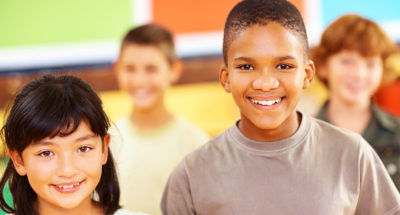
Superstar
To build trust and inclusion, students play a game in which they learn more about each other and celebrate what they have in common.

To build trust and inclusion, students play a game in which they learn more about each other and celebrate what they have in common.
Students will:
Take a moment to reflect on what you might have in common with one or more of your students. Does this make you feel more connected to them?
Playworks’ new SEL Game Guide contains more than 150 games that you can use to reinforce social and emotional skills. Inside, you will find brain breaks, recess favorites, variations on classic games, and facilitation tips that make playtime fun, safe, and inclusive for all kids. Visit www.playworks.org to learn more about Playworks and how play can help kids stay active and learn valuable life skills.
Were social bonds between students formed or strengthened during this game, especially among students who did not know each other well?
Human beings “categorize” each other into identity groups based on many different features, such as race, ethnicity, religion, gender, sexual orientation, and economic status; however, this process can easily lead to stereotyping and other forms of discrimination.
Numerous studies have found that when we re-categorize people who are not part of our identity group based on things that we have in common, we increase our acceptance of others and see them as part of “us.”
In our diverse schools, society, and world, getting along with people who appear different from us is imperative to creating safe and equitable communities in which all people thrive.
According to research, one of the most effective ways to break down barriers of prejudice, racism, and “othering” is the cultivation of cross-group friendships. By teaching students to look beyond their peers’ outward-facing identities and to get to know each other on a more personal, human level, teachers can make great strides in creating a world where everyone is valued.

Do you want to dive deeper into the science behind our GGIE practices? Enroll in one of our online courses for educators!
Comments